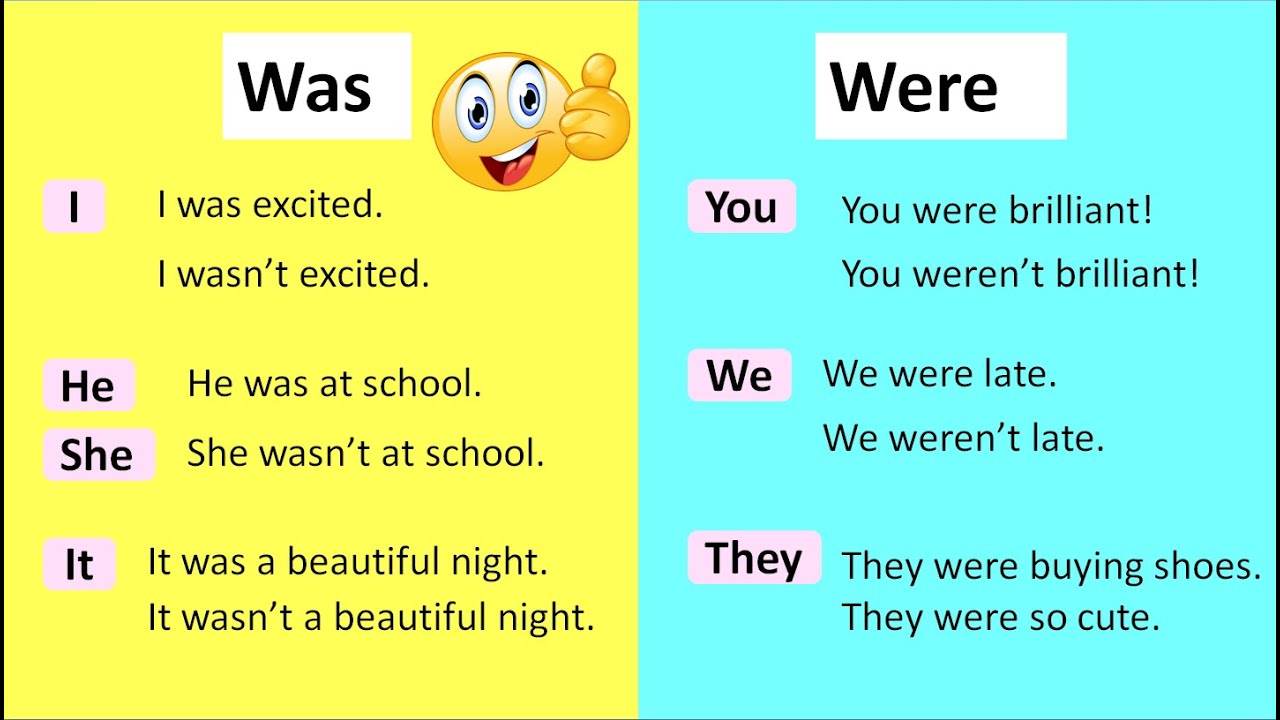In the English language, understanding verb forms is crucial for effective communication. Among these forms, "he were" and "he was" often create confusion for learners and even native speakers. While at first glance they may seem interchangeable, the nuances of their usage tell a different story. This article will delve into the intricacies of these two phrases, illuminating when to use each to enhance your command of the English language.
Verb forms not only reflect the tense of a sentence but also indicate the mood, especially in the case of subjunctive and indicative moods. In this exploration, we will clarify the distinction between "he were" and "he was," providing you with the necessary tools to navigate their usage confidently. Moreover, we will present real-life examples and engaging scenarios that highlight the practical application of these terms, making the learning process enjoyable and relatable.
As we embark on this linguistic journey, we will also examine common misconceptions and errors associated with these phrases. By the end of this article, you will not only understand when to use "he were" and "he was," but you will also appreciate the beauty of the English language in all its complexity. So, let’s dive deeper into this fascinating topic and clarify any uncertainties surrounding these verb forms.
What is the Difference Between "He Were" and "He Was"?
The primary difference between "he were" and "he was" lies in the grammatical mood. "He was" is used in the indicative mood, which states facts or asks questions, while "he were" is used in the subjunctive mood, which expresses wishes, hypotheticals, or situations contrary to fact. Understanding this distinction is crucial for proper usage.
When Do We Use "He Was"?
"He was" is the past tense form of the verb "to be" and is used to denote completed actions or states of being in the past. Here are some examples:
- He was a brilliant student.
- He was happy during the celebration.
- He was late for the meeting yesterday.
In each of these cases, "he was" indicates a fact about a past event or state.
Can "He Were" Be Used in Everyday Conversation?
While "he were" is less common in everyday conversation, it does have its place especially in hypothetical or conditional statements. Consider the following examples:
- If he were here, he would join us.
- I wish he were more understanding.
In these instances, "he were" expresses a wish or a condition that is not true in the present reality.
How Do Contexts Influence the Use of "He Were or He Was"?
The context in which these phrases are used can significantly influence their meaning. For instance, in a narrative or storytelling context, "he was" sets the scene and conveys information, while "he were" often introduces a hypothetical scenario or a reflection on what could have been.
Are There Exceptions to the Rules?
Language is fluid, and English is no exception. While "he was" and "he were" follow certain grammatical rules, colloquial speech may sometimes bend these rules. In some dialects, you might hear "he were" used in ways that traditional grammar would not approve of. It’s essential to be aware of these variations, especially when engaging in conversations with people from different linguistic backgrounds.
What Role Does Literature Play in Understanding "He Were or He Was"?
Literature provides a rich tapestry of examples that illustrate the use of "he were" and "he was." Authors often employ these phrases to convey mood and tone. For instance, when a character reflects on a past event or wishes for something different, the choice of "he were" can evoke a sense of longing or regret. On the other hand, "he was" serves to ground the reader in reality.
Can You Provide Examples from Popular Culture?
Understanding these phrases can be further enriched by examining their use in popular culture. Consider the following notable examples:
- In the song "If I Were a Boy" by Beyoncé, the use of "were" emphasizes a hypothetical situation and reflects on gender roles.
- In Shakespeare’s works, you will often encounter "were" used in a subjunctive context, showcasing its literary elegance and depth.
How Can I Practice Using "He Were or He Was"?
To master the usage of "he were" and "he was," practice is key. Here are some strategies:
- Write sentences using both forms and identify the context.
- Engage in conversations focusing on hypothetical scenarios to practice "he were."
- Read literature and analyze the use of these phrases in different contexts.
What Are Common Misunderstandings Regarding "He Were or He Was"?
Many learners often confuse "he were" with "he was," believing they can be used interchangeably in all contexts. This misunderstanding can lead to grammatical errors in both writing and speaking. It’s important to remember that while they may sound similar, their meanings and uses are distinct and should be treated as such.
Conclusion: Mastering "He Were or He Was"
In conclusion, mastering the difference between "he were" and "he was" is essential for anyone looking to enhance their English language skills. By understanding the grammatical moods and contexts in which these phrases are used, you can communicate more effectively and confidently. Remember that practice makes perfect, so continue to explore, write, and engage with the language to solidify your understanding.




